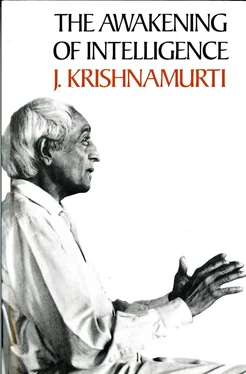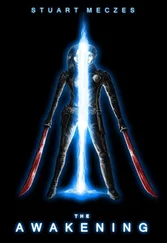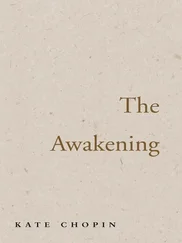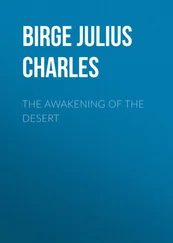KRISHNAMURTI: Yes, an outside agency.
Naudé: An outside agency which will be the consolation, the final solution. But it is also a fact that there are things which are really outer problems: the roof leaks, the sky is full of pollution, the rivers are drying up, there are such problems. And there are wars—they are visible outer problems. There are also problems which we think to be inner problems, our secret and closed longings, fears and worries.
KRISHNAMURTI: Yes.
Naudé: There is the world, and there is man’s reaction to it, man’s living in it. And so there are these two entities—at least in a practical sort of way we can say there are. And so probably the trying to solve practical problems overflows into the inner state of man and engenders problems there.
KRISHNAMURTI: That means we are still keeping the outer and the inner as two separate movements.
Naudé: Yes, we are. We do.
KRISHNAMURTI: And I feel that is a totally wrong approach. The roof does leak and the world is over-populated, there is pollution, there are wars, there is every kind of mischief going on. And not being able to solve that we turn inward; not being able to solve the inward issues we turn to something outer, still further away from all this. Whereas if we could treat the whole of this existence as one unitary movement, then perhaps we would be able to solve all these problems intelligently and reasonably and in order.
Naudé: Yes. It seems that is what you speak about. Would you mind telling us how these three problems are really one thing?
KRISHNAMURTI: I am coming to that, I am coming to it. The world outside of me is created by me—not the trees, not the clouds, the bees and the beauty of the landscape—but human existence in relationship, which is called society, that is created by you and by me. So the world is me and I am the world. I think that is the first thing that must be established: not as an intellectual or an abstract fact, but in actual feeling, in actual realisation. This is a fact, not a supposition, not an intellectual concept, but it is a fact that the world is me and I am the world. The world being the society in which I live, with its culture, morality, inequality, all the chaos that is going on in society, that is myself in action. And the culture is what I have created and what I am caught in. I think that is an irrevocable and an absolute fact.
Naudé: Yes. How is it that people don’t see this enough? We have politicians, we have ecologists, we have economists, we have soldiers all trying to solve the outside problems simply as outer problems.
KRISHNAMURTI: Probably because of a lack of the right kind of education: specialisation, the desire to conquer and go to the moon and play golf there, and so on and so on! We always want to alter the outer hoping thereby to change the inner. “Create the right environment”—the communists have said it a hundred times—“then the human mind will change according to that.”
Naudé: That is what they say. In fact, every great university, with all its departments, with all its specialists, one could almost say that these great universities are founded and built on the belief that the world can be changed by a certain amount of specialised knowledge in different departments.
KRISHNAMURTI: Yes. I think we miss this basic thing, which is: the world is me and I am the world. I think that feeling, not as an idea, that feeling brings a totally different way of looking at this whole problem.
Naudé: It is an enormous revolution. To see the problem as one problem, the problem of man and not the problem of his environment, that is an enormous step, which people will not take.
KRISHNAMURTI: People won’t take any step. They are used to this outward organisation and disregard totally what is happening inwardly. So when one realises that the world is me and I am the world, then my action is not separative, is not the individual opposed to the community; nor the importance of the individual and his salvation. When one realises that the world is me and I am the world, then whatever action takes place, whatever change takes place, that will change the whole of the consciousness of man.
Naudé: Would you like to explain that?
KRISHNAMURTI: I, as a human being, realise that the world is me and I am the world: realise, feel deeply committed, am passionately aware of this fact.
Naudé: Yes, that my action is in fact the world; my behaviour is the only world there is, because the events in the world are behaviour. And behaviour is the inner. So the inner and the outer are one because the events of history, the events of life, are in fact this point of contact between the inner and the outer. It is in fact the behaviour of man.
KRISHNAMURTI: So the consciousness of the world is my consciousness.
Naudé: Yes.
KRISHNAMURTI: My consciousness is the world. Now the crisis is in this consciousness, not in organisation, not in bettering the roads—tearing down the hills to build more roads.
Naudé: Bigger tanks, intercontinental missiles.
KRISHNAMURTI: My consciousness is the world and the consciousness of the world is me. When there is a change in this consciousness it affects the whole consciousness of the world. I don’t know if you see that?
Naudé: It is an extraordinary fact.
KRISHNAMURTI: It is a fact.
Naudé: It is consciousness that is in disorder; there is no disorder anywhere else.
KRISHNAMURTI: Obviously!
Naudé: Therefore the ills of the world are the ills of human consciousness, and the ills of human consciousness are my ills, my malady, my disorder.
KRISHNAMURTI: Now when I realise that my consciousness is the consciousness of the world, and the consciousness of the world is me, whatever change that takes place in me affects the whole of consciousness.
Naudé: To this people always say: that’s all very well, I may change, but there will still be a war in Indo-China!
KRISHNAMURTI: Quite right, there will be.
Naudé: And ghettos and over-population.
KRISHNAMURTI: Of course, there will be. But if each one of us saw the truth of this, that the consciousness of the world is mine, and mine is the world’s; and if each one of us felt the responsibility of that—the politician, the scientist, the engineer, the bureaucrat, the business man—if everybody felt that, what then? And it is our job to make them feel this; that is the function of the religious man, surely?
Naudé: This is an enormous thing.
KRISHNAMURTI: Wait, let me go on. So then it is one movement. It is not an individual movement and his salvation. It is the salvation, if you like to use that word, of the whole of man’s consciousness.
Naudé: The wholeness, and the health of consciousness itself, which is one thing and in which is contained what appears to be the outer, and what appears to be the inner.
KRISHNAMURTI: That’s right. Let’s keep to that one point.
Naudé: So what you are speaking about is in fact that health, that sanity, and that wholeness of consciousness, which always has been in fact an indivisible entity.
KRISHNAMURTI: Yes, that’s right. Now when the people who want to create a different kind of world, the educators, the writers, the organisers, when they realise the world as it is now is their responsibility, then the whole of the consciousness of man begins to change. Which is what is happening in another direction, only they are emphasising organisation, division; they are doing exactly the same thing.
Naudé: In a negative way.
KRISHNAMURTI: In a destructive way. So from that the question arises: can this human consciousness, which is me—which is the community, which is the society, which is the culture, which is all the horrors that are produced by me in the context of the society, in the culture which is me—can this consciousness undergo a radical change? That is the question. Not escape into the supposed divine, not escape. Because when we understand this change in consciousness the divine is there, you don’t have to seek it.
Читать дальше












